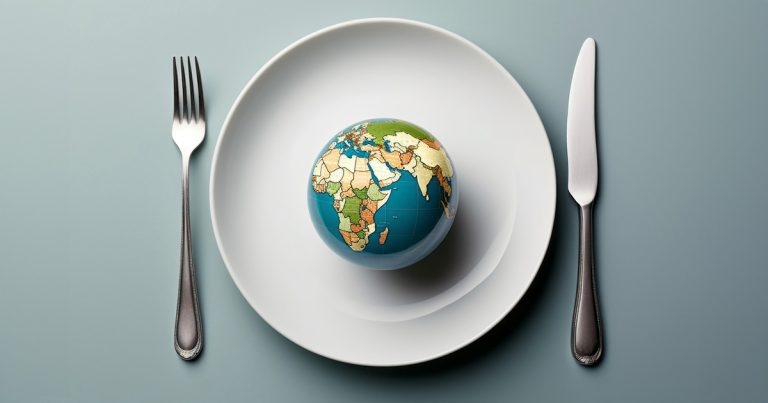13 Feb 2024
Bryan Charleston explains how a new scientifically independent facility is already leading this fight.

Image © top images / Adobe Stock
How can the UK help to tackle world hunger? The Government’s recent Global Food Security Summit and white paper on international development propose a renewed focus on prioritising partnerships, mobilising international finance and driving global policy change.
Beyond the political sphere, both initiatives recognise the power of science to unlock innovations that address extreme poverty and climate change. Threats to global food chains and human lives are many and varied: climate change, conflict, biodiversity loss, to name a few.
New animal vaccines continue to play a critical role in protecting poor farmers and their families from the threats they face from animal disease – threats that can quickly escalate and spread to all parts of the globe.
The point at which early-stage research projects run into the harsh realities of commercial development is notorious because translating blue-sky thinking into real-world answers is time consuming, costly and often unsuccessful.
The Centre for Veterinary Vaccine Innovation and Manufacturing (CVIM), mentioned in the white paper, is dedicated to the improvement of animal health, food security and livelihoods through the development of novel, affordable veterinary vaccines targeted at low and middle-income countries (LMICs).
De-risking projects for potential partners has allowed us to establish collaborations with multinationals, small biotech companies and academics to develop vaccine platforms that can be applied to control a wide range of infectious diseases in multiple species.
Backed by three major partners, we aim to build a new pilot-scale good manufacturing practice (GMP) facility over the next five years.
Based at The Pirbright Institute, CVIM will leverage the unique facilities and national capabilities of Pirbright with oversight of scientific priorities provided by external experts. Funding from the Biotechnology and Biological Sciences Research Council, Foreign, Commonwealth and Development Office and the Bill and Melinda Gates Foundation will support us over the next five years.
Much needs to be done. Partnering with the animal health industry, we are translating science into suitable proofs of concept for the development of novel vaccine platform technologies.
Fit for purpose and cost-effective, we aim for our vaccines to be ready for transfer to local manufacturers. We will prioritise neglected livestock diseases and urgent, emerging zoonotic diseases, and Pirbright’s knowhow will reach our partner LMICs at the grassroots of society.
Our ambition is bold. CVIM currently occupies process development suites, offices, meeting rooms and a large-scale cryo-storage facility for Master Seeds on the Pirbright site.
Our five-year vision is for a new, high-quality clean room suite operating at a GMP quality level, with an additional GMP quality control laboratory.
Meanwhile, our partnerships will grow. We are already working on four key projects to develop vaccine platforms using protein expression, RNA and viral vector technologies, including a foot-and-mouth disease virus-like particle vaccine for East Africa with MSD Animal Health, and an mRNA vaccine collaboration with Belgium-based Quantoom Biosciences.
Collaboration will be the lifeblood of CVIM. To thrive, we need partners with complementary skills and aligned interests: companies with novel platform technologies relevant for veterinary vaccines, organisations which can help us evaluate novel vaccines in the field, and most importantly understand what livestock keepers need to shape our programmes.
In short, in the fight for food security, we want to work with those with one common and overriding goal: to make a difference to people’s lives.
To find out more about CVIM, visit www.pirbright.ac.uk/cvim or email [email protected] for more information.